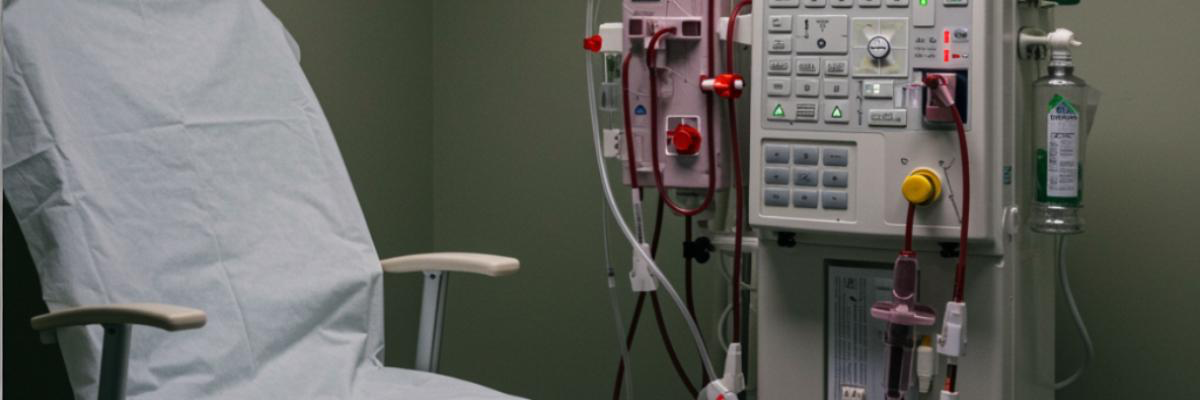When your kidneys can no longer adequately filter your blood, dialysis becomes a life-sustaining necessity. This medical procedure takes over the essential function of removing waste products and excess fluid from your body. For patients facing this journey, a significant decision involves choosing the type of treatment. The primary options are hemodialysis and peritoneal dialysis. Understanding the fundamental differences in the hemodialysis vs peritoneal dialysis debate is a critical step in selecting the method that best aligns with your health needs, lifestyle, and personal preferences.
At Doral Health & Wellness, we are proud of our commitment to providing integrated, interdisciplinary health services in our state-of-the-art medical facility. Our expert nephrologists offer trusted medical treatments and personalized guidance to support you through every stage of your kidney care journey. We invite you to connect with us for comprehensive and compassionate care.
A Detailed Look at Hemodialysis vs Peritoneal Dialysis
Choosing a dialysis modality is a significant decision that will be made in partnership with your nephrologist. The choice depends on many factors, including your medical condition, the level of support you have at home, and your desire for independence. A consultation with the best kidney doctor will provide the specific guidance you need.
Understanding Hemodialysis
Hemodialysis is the most common form of dialysis. This method uses an artificial kidney, called a dialyzer, to remove waste and extra fluid from your blood outside of your body.
How it works:
- Access – Before starting hemodialysis, a minor surgical procedure is required to create a vascular access site, which allows blood to be easily removed and returned to your body. This is typically an arteriovenous (AV) fistula or graft in your arm.
- The Procedure – During treatment, two needles are placed into your access site. One needle draws blood, which is then pumped through the dialyzer. Inside the dialyzer, waste products pass from your blood into a cleaning solution called dialysate. The filtered blood is then returned to your body through the second needle.
- Location and Schedule – Most patients receive hemodialysis at a specialized dialysis center. A typical schedule involves three sessions per week, with each session lasting approximately four hours. Home hemodialysis is also an option for some patients, which may allow for more frequent or longer sessions.
Understanding Peritoneal Dialysis
Peritoneal dialysis is a different approach that uses the lining of your own abdomen, called the peritoneal membrane, as a natural filter.
How it works:
- Access – This method requires a surgical procedure to place a soft tube, known as a catheter, into your abdomen. The catheter remains in place permanently and is used to administer the treatment.
- The Procedure – A sterile cleansing fluid, the dialysate, is infused into your abdominal cavity through the catheter. This fluid dwells inside your peritoneum for a set period, during which waste products and excess fluid from your blood are drawn into the dialysate. After the dwell time, the used fluid is drained out and discarded. This process of draining and refilling is called an exchange.
- Location and Schedule – Peritoneal dialysis is a home-based therapy. There are two main types:
- Continuous Ambulatory Peritoneal Dialysis (CAPD) – You perform the exchanges manually throughout the day, typically four times, with each exchange taking about 30 minutes. You are free to go about your daily activities during the dwell time.
- Automated Peritoneal Dialysis (APD) – A machine called a cycler automatically performs the exchanges for you at night while you sleep, usually over a period of 8 to 10 hours.
Comparing the Lifestyles and Considerations
The debate of hemodialysis vs peritoneal dialysis often comes down to lifestyle preferences and medical suitability. A “nephrology doctor NY” can help you evaluate these factors.
Lifestyle with Hemodialysis
- Pros – Treatments are performed by a trained clinical team, so you do not have to manage the procedure yourself. You only have treatment three days a week, leaving four days “dialysis-free.” The social environment of a center can be supportive.
- Cons – You must travel to a center, and the schedule is rigid. Dietary and fluid restrictions are often stricter. The four-hour sessions can be draining.
Lifestyle with Peritoneal Dialysis
- Pros – It offers greater flexibility and independence, as it is performed at home and can be done while traveling. Dietary restrictions may be less strict than with hemodialysis. The process is gentler, with more continuous filtration.
- Cons – It is a daily commitment, requiring you to perform the exchanges yourself or use a machine every night. You must have space in your home to store supplies. There is a risk of infection at the catheter site or in the peritoneum (peritonitis).
Finding the “best nephrologist near me” is key to understanding which modality is safer and more effective for your unique medical profile. A search for “nephrology near me” can connect you with local experts.
Your Partner in Advanced Kidney Care
The choice between hemodialysis and peritoneal dialysis is deeply personal. Both are effective treatments for kidney failure, but they offer very different experiences. A thorough discussion with your nephrologist about your health status, lifestyle needs, and comfort level with each procedure is the most important step. This collaborative decision ensures you select the dialysis method that empowers you to live your life as fully as possible.
For expert and compassionate kidney care in the East New York community, trust the specialists at Doral Health & Wellness. Our dedicated team provides cutting-edge dialysis services and comprehensive medical support to help you navigate your treatment options. To schedule a consultation with the best kidney doctor and make an informed decision about your care, contact Doral Health & Wellness today at 1-718-365-2555 or visit us at 1797 Pitkin Avenue, Brooklyn, New York 11212. For general information about Doral Health & Wellness services, you can contact or email info@doralhw.org.






